|
The Teacher, Johannesburg, March 1999
MEC fuels debate about corporal punishment
The MEC for education in Kwazulu-Natal is stirring a hornets' nest with her outspoken support for corporal punishment.
JULIA GREY reports
THE newly appointed MEC for education in KwaZulu-Natal has hardly had time to settle into her new office, but she has already established herself as a figure of controversy - because of her outspoken support for corporal punishment.
Eileen kaNkosi Shandu, formerly the deputy minister of public works in KwaZulu-Natal and with 28 years' experience as an educator under her belt, was installed as the provincial head of education last month. In a recent interview with The Teacher, she states: "If I had my way, I would reintroduce corporal punishment."
Ministry of Education representative Bheki Khumalo says that Shandu's position is "in violation of the national constitution". He goes on to say that "corporal punishment is simple assault. Teachers who use corporal punishment are doing so at their own peril. They are opening themselves up to prosecution."
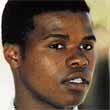
Titus Kunene, a matriculant
'I do not agree with corporal punishment. It could bring teachers into conflict with parents and pupils. Many pupils already carry dangerous weapons to school. They could be used in retaliation if they are caned. It is therefore safer for teachers and principals to explore other ways to discipline pupils. Detention, suspension and - in serious cases - expulsion are better alternatives."

Claudia Ndlela, a parent
'Discipline in schools is important but I do not think that corporal punishment should be brought back. Beating a child could have psychological effects later on. Detention could be used in place of the cane. If corporal punishment is abused our children could be severely injured. Some children may even run away from school like I used to do because of the fear of being beaten by teachers."

Mbali Sibiya, a high school pupil
'There are alternative ways of punishing children. No one likes staying late after school so detention might be just as effective. Giving a pupil extra work as punishment may discipline as well as help the pupil academically. Corporal punishment could also leave psychological scars."
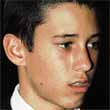
Deon Human, high school pupil
'It should be brought back. If pupils know that they are going to be lashed, they won't be naughty any more. It could also stop smoking and drug abuse and results may also improve if there is better discipline in schools. I am usually well behaved but sometimes take advantage of the situation because physical punishment is not allowed."
But Shandu is adamant that the cane is the surest way of maintaining "an orderly and safe environment" in schools, and is convinced that "parents want teachers to administer corporal punishment".
Shandu is herself a mother. She says she has an "internal arrangement" with the teachers at her only son's school - Vryheid High school - that "if they feel he has done an act that warrants he should be given a slap, they should do so".
This is in direct violation of the South African Schools Act, which specifically says that parents cannot legally make such arrangements. Simply put, this is tantamount to encouraging someone else to break the law.
In doing this, Shandu is opening herself - and the teacher carrying out the corporal punishment - up to the possibility of being prosecuted. Legally, her son, who is in matric, could institute court proceedings against her and the teacher for violating his constitutional rights, as could any entity with jurisdiction (like the state).
Khumalo would not comment on whether the education ministry would prosecute Shandu, saying, "I would prefer to discuss this matter with the MEC."
Meanwhile, the new MEC makes no bones about her disagreement with her ministry's policy, even going as far as to say that the government is undemocratically imposing its will in spite of widespread popular support for corporal punishment. "The government is acting on delegated power from society, not absolute power. It must make norms, but if these norms go against what society wants, then the government must listen ... Who should they [the government] listen to if they don't listen to the owners of the children - the parents?"
Although there is no hard evidence to support her view that the majority of stakeholders in education want the cane brought back, certain voices are clamouring for its return. Much of their argument stems from the perception that a good beating is a time-tested way of instilling obedience in the child, whereas "soft" alternatives - detention, suspension and the like - apparently have little effect as deterrents on student misbehaviour.
Shandu's belief in the effectiveness of corporal punishment is based not only on her own experience as a teacher and principal, but also on the dismal matric results, and her perception of a deterioration of effective learning in schools:
"If there are effective alternatives [to corporal punishment], why do we see so many pupils in the streets? Why do we see teachers with their hands up crying that they can't maintain discipline?"
Shandu's criticism of the government's handling of the transition of corporal punishment from endorsed to outlawed becomes even more biting when she says:
"Whoever has outlawed corporal punishment should have put in alternatives. If effective alternatives have not been put in place, I think it is an irresponsible move to make [to ban corporal punishment]."
Khumalo refutes the idea that there are no effective alternatives, but concedes that the government "still has a lot of work to do" to convince all stakeholders to abandon the practice of beating students in the name of discipline.
While saying that this is simply her "own opinion", the fact remains that Shandu is in a position of significant authority within the education hierarchy. As such, her opinion carries a weight that could influence teachers not to bother exploring alternatives, and to regard the practice of corporal punishment as officially condoned.
-- The Teacher/Mail & Guardian, March, 1999.

Bring back the cane: Eileen kaNkosi Shandu's controversial stance.
photo: rajesh jantilal

Trishana Singh, a matriculant
'I'm in favour of corporal punishment. The crime rate in our country stems from the lack of discipline in the youth of today. The calibre of today's pupils has deteriorated tremendously and there is no respect for their elders. However, physical punishment should be a last resort and must be strictly monitored. But there is no doubt this is the only deterrent in a society where many teachers currently fear their pupils."
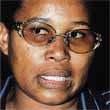
Beryl Khumalo, a parent
'Corporal punishment should be selectively administered. The principals and governing bodies should decide whether to use it based on their circumstances and the offence. Parents and teachers should work hand in hand and jointly determine the nature of the punishment."
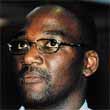
Bongani Petrus Phakathi, an educator
'In most African schools it doesn't do much harm unless the teacher overdoes it. It is also part of the students' traditional upbringing. If it is aimed at making the pupils learn harder, there is nothing wrong with it, as long as it is constitutionally allowed. Personally, I found that corporal punishment helped to discipline me and also enhanced my results. I have suffered no psychological damage in the process."
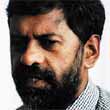
Krish Govender, human rights lawyer and state attorney for KwaZulu-Natal
'In terms of one of the earliest judgements of the Constitutional Court, corporal punishment for juveniles was declared unconstitutional and condemned without reservation. Unfortunately, large sectors of our community still do not accept that corporal punishment, even at the domestic level, is unacceptable. Frequent disruptions at schools have undermined the authority of teachers and principals and the broader school structure. If we transform schools into pleasant environments of learning, we will not have disciplinary problems."
The Teacher, Johannesburg, March 1999
Cracking the whip
A profile of the newly appointed MEC for education in Kwazulu-Natal
AJITH BRIDGRAJ reports
FORMER deputy minister of public works in KwaZulu Natal, Eileen kaNkosi Shandu (55), has been tasked with the responsibility of turning around the flagging fortunes of education in the province.
Shandu was recently installed as the new MEC for education after her predecessor, Vincent Zulu, was unceremoniously dumped for failing to address the province's education crisis. She knew that the challenges of being the head of the country's largest provincial education department were bound to be extremely demanding.
The new MEC of arguably one of the most beleaguered government departments in KwaZulu-Natal brings a lifetime of experience in the education sphere to her new job. It is also not the first time she has been asked to take over the reins amid instability and chaos. In 1983 Shandu was lured back into education after a stint in the private sector when the principal of Ekudubekeni High school in rural Mahlabatini abandoned the post after stone-throwing incidents at the school.
Shandu was installed as principal, a post which she occupied for 11 years before moving to Parliament in 1994.
Born on a farm at KwaBanakile, Shandu attended rural schools for most of her life and matriculated from the Inanda Seminary. She completed her teachers' diploma at the then University College of Zululand in 1967. She later went on to earn her bachelor of arts degree.
Shandu taught in Swaziland for a decade before returning to KwaZulu-Natal, where she once again went into teaching. In 1978 she ventured into the field of community development and became the senior officer in the Inkatha Development Office.
Then in 1983 came her appointment as principal of Ekudubekeni High school. "This was a real rural school with no water or electricity and high educator/learner ratios. But we managed under those very difficult conditions," recalls Shandu.
She also laments the dire underfunding of education in the province. "We are short by almost R1 000 per child. If the funding is not improved then we are really going to battle to improve education in our province," says Shandu. Nevertheless, she is confident of success if all stake-holders roll up their sleeves and put in a Trojan effort. "We need to inculcate the culture of work among educators and learners and a culture of responsibility among parents," she states.
Shandu promises to make personal visits to schools that fared dismally in last year's matric examinations. Commending those schools that performed well under trying circumstances, she is determined to uplift the quality of education in KwaZulu-Natal to its "previously excellent standards".
Shandu is a fervent believer in corporal punishment as a means of discipline, and has adopted the controversial stance of advocating the return of the cane.
She believes that the school curriculum is in desperate need of review. "One of my major problems with the South African education system is that it tends to focus on the subjects that lead to white-collar jobs. One is looking to break that kind of trend where the academic subjects are emphasised to the detriment of the technical and practical ones that give immediate access to employment opportunities," says the MEC.
Shandu also concedes that as a consequence of the rationalisation and redeployment process currently under way in the province, "a lot of schools are going to suffer. As a teacher myself, I can empathise with the difficulties that educators are facing," she says.
She also aims to confront the problems associated with the education of children with disabilities. "The disabled are often forgotten and neglected. At present, there are only 58 schools that cater for them," says Shandu.
Meanwhile, she is determined to leave no stone unturned in tackling the mounting crises that beset education in KwaZulu-Natal.
-- The Teacher/Mail & Guardian, March, 1999.
 Set to tackle the education crisis: Eileen kaNkosi Shandu has her work cut out for her. Set to tackle the education crisis: Eileen kaNkosi Shandu has her work cut out for her.
photo: rajesh jantilal
Material on this site copyright The Teacher/Daily Mail & Guardian
The Teacher, Johannesburg, March 1999
Reality imitating television?
Editorial: PHILIPPA GARSON
IT comes as no surprise that the television drama series Yizo Yizo has ignited a forest fire. No sooner do we hear that the scorching series, set in a fictional township school, has stolen the attention of the youth and general public, and soared to the top of the SABC's audience ratings, than the mounting voices of dissent grow louder.
News of copycat behaviour imitating the base activities of one of the gangster characters, Papa Action, hits the press and things really start sizzling.
Of course, destructive copycat incidents are causes for concern. But in my view, occurrences like these, though regrettable, must be seen in the context of a far bigger, more momentous, process whose consequences can only be positive. (I hope I too am not forced to eat my words!)
At last, the nation appears to be waking up to the crisis in our schools instead of closing its sleepy eye. Surely the crisis itself, and what can be done about it, is the real point - not whether the programme should be aired or not.
After all, Yizo Yizo is based on actual research. The characters, the incidents, the setting all resonate with authenticity. Is this why the programme is for many simply too hot to handle? The youth, as they remind us in public debates, are not empty vessels incapable of making up their own minds. If they were, we would have a lot more mass killers out there, imitating the scenes of violence our television and movie screens feed us daily. Yizo Yizo is not being broadcast in a vacuum. It is backed by a print campaign aimed at youth and teachers which explores solutions to the many problems raised.
One of the hot topics raised by the series, and tackled in this month's insert, has become even hotter in light of the recent announcements by KwaZulu-Natal's controversial new MEC for education. Eileen kaNkosi Shandu, it appears, would love to bring back corporal punishment.
She has even gone so far as to recommend her son gets his fair share of whacking - in brazen contravention of the law. While bringing back corporal punishment would surely be a return to the dark ages, her points have to be taken seriously: teachers, who have not been given viable alternatives to the cane, are battling to enforce discipline. This is yet another example of the mismatch between our lofty new legislative and policy framework and the harsh reality out there. Which is why, to my mind, Yizo Yizo is so powerful: it looks at real situations and offers some actual - not theoretical - solutions. We need more interventions like these.
Interventions we can do without right now include introducing grade 7 in Curriculum 2005 next year, as well as grade 3. For grade 7, teachers will have to come to grips with four entirely new learning areas. Help!
Apparently this ridiculous decision has something to do with the provinces' bid to outdo each other. Pretending to be ready to introduce grade 7 may serve the egos of those concerned, but it won't do the teachers any good.
-- The Teacher/Mail & Guardian, March, 1999.
Material on this site copyright The Teacher/Daily Mail & Guardian
Cape Argus, 2 March 1999
An academy of the heart
'I believed that we could make difference' says founder
By Andrea Botha
Staff Reporter
When 12-year-old Zandile Buthelezi came to the Hermanus Christian Academy six years ago, she could not read or write and spoke only Zulu and Xhosa.
Today she speaks beautiful English in a soft and gentle voice and helps teachers at the school by tutoring the younger children.
Zandi, as she is known, had been sent from Durban by her unemployed parents to be looked after by a family friend in the Zwelihle squatter camp in Hermanus.
She was looking after her foster "siblings" on the school's grounds, where their father was a caretaker, when she was spotted by Veronica Ross, one of the co-founders at the school.
Mrs Ross asked if she wanted to join the school and within days Zandi was a pupil.
"I would like to be a teacher here one day," says Zandi with a shy smile.
There are many children like Zandi at the Hermanus Christian Academy.
The school was started in 1993 by Veronica and her husband Nealie Ross.
They had one teacher and four children in a rented house.
Three of the children were on the social worker's list of neglected and abused children and needed special attention.
In five years, the school has grown to have 95 children and now runs from a double-storey building in Sandbaai outside of Hermanus.
The school has pre-primary, primary and high school classes and has 12 teachers, or supervisors, as they are called here.
Veronica says: "When I saw the children walking around on the street with no hope, I believed we could make a difference."
Veronica and Nealie were working at another Christian school at the time, but had a vision of a school for disadvantaged children where they could offer all the educational opportunities available and teach them according to their religious beliefs.
They sold their house in Claremont and invested all their time and savings in the school.
Their main aim is to raise more funds for the school and to get each child sponsored.
Most of the children's parents are poor and unemployed and cannot afford school fees.
This means that parents pay anything from R20 to the required R150 a month for a primary school child. Teaching materials are not included.
Bradley Rutherford, Veronica's son from her first marriage, became headmaster at the school in 1998, leaving Veronica and Nealie free to do fundraising and see to the school's, and children's, needs.
Mr Rutherford says the school accepts children of all races, ages and backgrounds.
But he says he is loathe to admit gangsters or children with drug problems. This would impact too severely on the other children.
The school follows the School of Tomorrow curriculum, which focuses on each child's individual progress and enables them to learn at their own pace.
In extreme cases, and against the terms of the country's constitution, the school administers corporal punishment but only after parents have given written consent.
Veronica and Nealie dream of starting an adult skills centre at the school and to start a Ministry Care house, where children can stay over if they have difficulties at home.
It would also provide shelter for parents or children in need. Providing a loving and compassionate learning environment for the children is very important to them.
As Nealie Ross says: "It is not so much head knowledge as heart knowledge that makes a person successful."
All Material © copyright Independent Newspapers 1999.
Daily Mail & Guardian, Johannesburg, 11 March 1999
Education's gap between fair play and rough justice
The gap between noble aims and classroom reality is nowhere more obvious than in the case of corporal punishment, writes PHILIPPA GARSON
WHEN a country's legislative and policy framework is totally at odds with the reality on the ground, sober mutterings about anarchy and "meltdown" begin.
Compared with the mayhem in some of the disintegrating, war-ravaged countries to the north, it would appear South Africa has nothing to worry about in this regard. But the gaping mismatch between our impressive democratic framework and our rough realities on the ground is cause for concern.
In our education system, examples of this yawning chasm between theory and practice are everywhere. Take the issue of corporal punishment. Most people agree -- in principle -- that corporal punishment is a barbaric practice that should be outlawed.
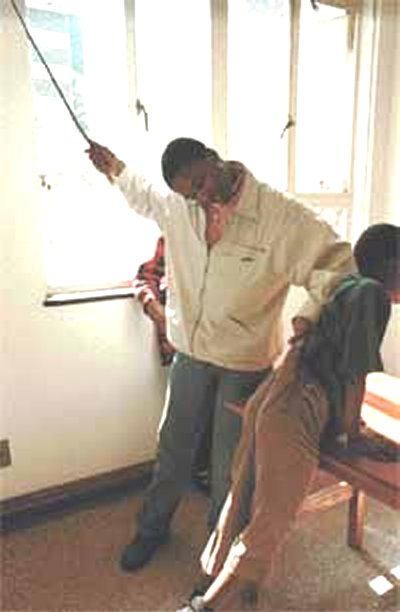 The reality is that many teachers, already grappling with discipline problems in their classrooms, are being overrun by unruly pupils -- or they are simply ignoring the law and administering "cuts" as usual. And who can blame them when no one has bothered to give them any training on alternative discipline measures? The reality is that many teachers, already grappling with discipline problems in their classrooms, are being overrun by unruly pupils -- or they are simply ignoring the law and administering "cuts" as usual. And who can blame them when no one has bothered to give them any training on alternative discipline measures?
I have seen this disregard for the law in several upmarket schools. And in many of the poorer schools where parents are perhaps less well-versed on the matter of their children's constitutional rights and where a culture of rough justice is often the norm, it appears to be "bend-over" business as usual.
When new KwaZulu-Natal MEC for Education Eileen kaNkosi Shandu expresses the desire to bring back corporal punishment -- and even gives the principal at her child's school the go-ahead to "klap [slap]" him, in blatant contravention of the law - she's on to something.
Much like vote-seeking politicians who make stirring speeches about bringing back the death penalty, KaNkosi Shandu is merely capitalising on the mood on the ground.
Of course teacher training takes a lot of time and money, but until teachers are given something to hold on to - a workshop or two would be a start -- and given some guidelines on other discipline measures like detentions and school-cleaning exercises (more constructive measures would be too much to ask for at this point), the government has only itself to blame for the embarrassing disregard for its laws.
Another glaring example of this inability to read the mood on the ground and react with the necessary back-up is the Department of Education's declared intention to introduce grade seven as well as grade three in the new curriculum next year. Clearly the political benefits of being able to add "grade seven" to the list of "educational achievements" by 2000 far outweigh the real damage this short-sighted decision will do to our already poorly trained teachers.
Since curriculum implementation is a provincial competence, the provinces could have used their relative autonomy in this regard and thrown up their hands and said "no".
Instead, they were apparently so caught up in a macho tussle to outdo each other that -- with the exception of the Western Cape, which has nothing to lose by swimming in the opposition direction -- they all pretended to be perfectly poised to introduce grade seven.
The reality is, this couldn't be further from the truth. Curriculum experts are horrified at the move, for good reason. One can guess the reactions of teachers who will have to relearn just about everything they teach.
Grade seven teachers will be required to teach four entirely new learning areas in the form of arts and culture, economics and management, life orientation and technology. What grade one and two teachers have been struggling with over the past two years will seem like a game of bingo in comparison.
In all likelihood, training of grade seven teachers will be nowhere near sufficient - the provinces have neither the money nor the capacity to do it properly - and teachers will simply carry on teaching the old subjects the old way. Yet another alarming gap between what happens and what is supposed to happen will emerge.
Philippa Garson is the editor of The Teacher, a sister publication to the Mail & Guardian
The Star, Johannesburg, 24 March 1999
Corporal punishment against the law for teachers
By Vivian Warby
Corporal punishment in schools is not only illegal, but also highly unethical and unprofessional.
And teachers who mete out corporal punishment would face the full might of the law, Bheki Khumalo, spokesperson for the minister of education, said yesterday.
"Corporal punishment is assault, and these teachers must be prepared to face the consequences of their actions. They are acting in conflict with the SA Schools Act, which rules out corporal punishment," said Khumalo.
A teacher who metes out corporal punishment could face three forms of action.
These are a criminal charge of assault, possible suspension by the provincial head of department, and disciplinary action which could include the teacher's professional licence being taken away by the SA Council of Educators.
The council is a professional body established to enforce the professional and ethical standards of the profession. The council's code of conduct states that an educator must exercise authority with compassion; avoid any form of humiliation; and refrain from any form of child abuse, physical or psychological.
The SA Schools Act stipulates that every school must develop its own code of conduct, said advocate Eben Boshoff, the Department of Education's director of legal services and legislation.
"The guidelines show a move away from a disciplinary system based on fear and force to one of mutual respect, commitment and participation of all stakeholders."
Corporal or "cruel, inhuman or degrading" punishment are ruled out.
Punishment which teachers could apply against pupils in cases of minor offences include a verbal warning or written reprimand, supervised school work, replacement of damaged property, and suspension from school activities such as sport or cultural activities.
Khumalo said teachers should also consider involving social workers or psychologists to ascertain the cause of bad behaviour.
All Material © copyright Independent Newspapers 1999.
| 

![]()